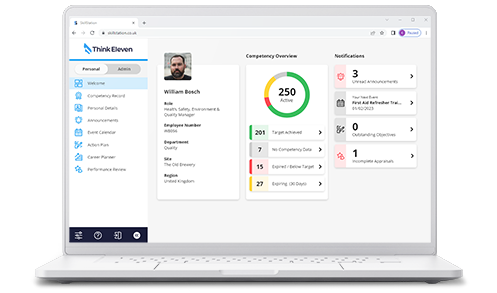An Introduction to Good Manufacturing Practice for Medicinal Products (GMP01) eLearning Course
Learning Objective
Good Manufacturing Practice (GMP) is a set of rules for medicines manufacturers to follow so that their products are safe, effective, and of good quality. The rules may be written into law or set out in guidance documents from regulatory authorities. Regulators will not allow medicinal products to be placed, or to remain, on the market in their country unless the products can be shown to be manufactured in compliance with GMP. To this end, they carry out inspections of manufacturing plants. Companies that persistently commit serious breaches of GMP requirements have suffered huge fines.
All manufacturing personnel must receive initial and ongoing training in the theory and practice of GMP. Everyone who works in a processing, quality control, packaging, or warehouse environment for a pharmaceutical or biotechnology company, or one of their contractors, must understand why GMP is important, how it applies to them, and how to comply with it. This module provides an ideal induction and refresher course in the basics of GMP. We begin by explaining what GMP is and why it is necessary. We then set out its main principles. Finally, we focus on two aspects of GMP that apply to everyone in the manufacturing environment: hygiene, cleaning, and sanitation; and documentation.
Who will benefit from this module?
Everyone who works in, or has occasion to enter into, a manufacturing environment in the pharma/biotech industry should have access to this module.
Learning Objectives
- State what GMP is and describe why it is important
- Identify sources of GMP rules in regulations and internationally standardised guidance
- Identify major goals of GMP, outline what manufacturers must do to achieve them, and list some of the things that you need to do in order to contribute
- Comply with basic requirements regarding hygiene, cleaning, and sanitation
- Comply with basic requirements regarding documentation
Module Outline
Module overview - An outline of the module’s scope and objectives, and notes on terminology.
GMP – what and why - This session explains what GMP is and why it is important, and it gives some lessons from history. It introduces the regulations and guidance documents which are the source of GMP rules. Finally it touches on regulatory inspections and the consequences that can arise from failure to comply with GMP requirements.
Principles of GMP - In this session we present an overview of the main principles of GMP, and we outline some things that manufacturing personnel need to do to comply with requirements. We identify the principal goals of GMP as: prevention of contamination; prevention of mix-ups; scrupulous documentation; validation and maintenance of processes and equipment; quality assurance by an independent unit; and training. We place GMP in the context of a company’s quality management system.
Hygiene, cleaning, and sanitation - Prevention of contamination is one of the most important goals of GMP. Contamination of product is often difficult to detect, so GMP rules emphasise preventive measures, including: attention to personal health and hygiene, and the wearing of special clothing, by staff; and cleaning and sanitation of premises and equipment. In this session we set out the basics of GMP requirements in these vital areas.
Documentation and records - Comprehensive documentation of procedures, formulas, work instructions, and specifications, and thorough recording of batch data, are fundamental requirements of GMP. In this session, we explain why documentation is so important, identify different types of document required, and set out some simple rules for recording and correcting data.
Assessment - Multiple-choice mastery assessment.
This course has a minimum of 25 learner registrations for us to provide a quotation.
Request a Quotation- Language
- UK
- Date last updated
- 5/20/2024
- Duration
- 1 Hour 30 Minutes
- Suitable Devices
-
- PC
- Tablet
- Audio is Required
-
- Optional
- Includes Video
-
- No
- Downloadable Resources
-
- Factsheets
- Linked within Course
- Transcripts
- Completion Criteria
-
- Complete all modules
- Multiple Choice Assessment
- Pass Mark
-
- 75% pass mark required
- Course Technology
-
- HTML5
- SCORM 1.2
- Can be customised
-
- Available at an Additional Cost
- Accreditation or Endorsements
-
- CPD
- Languages
-
- English
